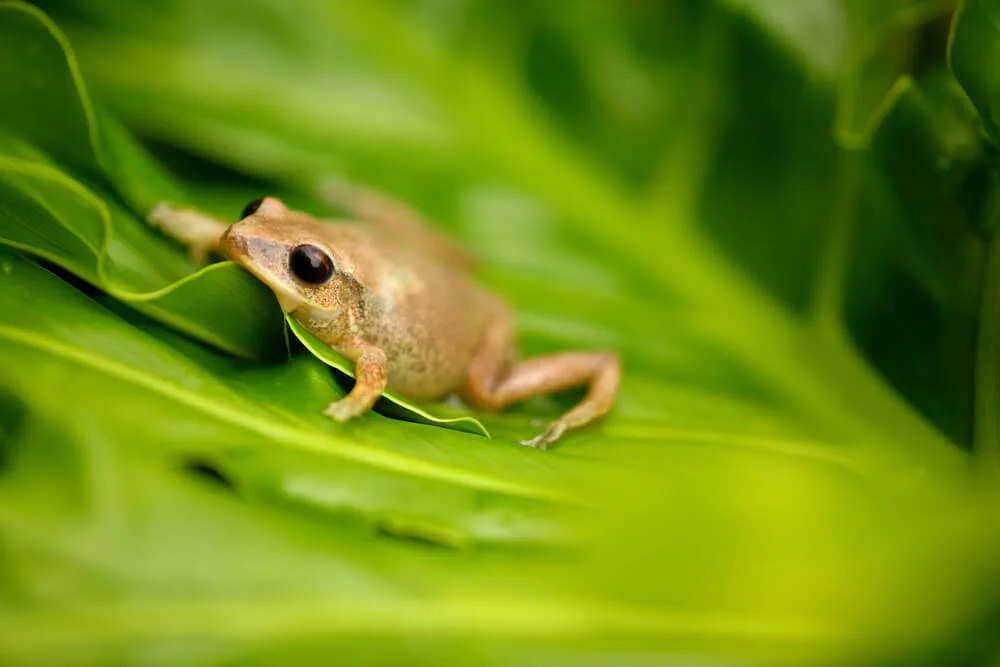
Image via Shutterstock.
The scientist said that if the trend continues, the heat could become too much for the sensitive amphibians to survive successfully.
The island’s native coquí frogs are calling at a higher pitch and appear to be decreasing in size because of climate change, scientists have found.
“Because they are smaller, they sing differently than they did before when they were bigger, and that is because of the size of the vocal sac,” Rafael Joglar, biologist and professor at the University of Puerto Rico Río Piedras Campus, explained to El Nuevo Día.
RELATED: A More Resilient Puerto Rico: How Biden’s Climate Crisis Plan Will Help Coastal Communities
The sound of the coquí is emblematic of Puerto Rico since the small frog is a native species of the island. It has only managed to survive outside of Puerto Rico in Hawaii.
Joglar explained that, unlike other animals, amphibians are sensitive to climate changes, because they cannot regulate their body temperature, as mammals and birds do.
That’s why the temperature influences the size of the amphibian and why lowland coquís sound differently than those in the mountains, where temperatures are lower.
What worries Joglar the most is the decreasing size of the frogs because, at the same time, the biomass, the amount of living matter, in the ecosystem is reduced.
“The biomass of coquís in Puerto Rico is extremely important in a tropical Caribbean forest like ours. As they get smaller, the biomass of these animals is reduced,” said Joglar, who is the founder of The Coquí Project, a non-profit organization whose mission is the conservation of biodiversity through scientific research.
Scientist Peter Narins of the University of California, Los Angeles, has been studying coquís’ calls for 23 years. He has noticed the behavior of male coquí frogs, using their distinctive call to mark their territory and warn off rivals, is changing too.
The scientist said that if the trend continues, the heat could become too much for the sensitive amphibians to survive successfully.
RELATED: El Otro Puerto Rico Emerges to Tackle the Housing Crisis and Displacement on the Island
Narins, along with colleague Sebastiaan Meenderink, who also traveled to the island to study the amphibian, are concerned that coquís will keep crawling up the mountain to escape higher temperatures at the bottom, but they could eventually run out of space.
“For now, the consequences are not dire. A barely perceptible change in frog body size and call has little impact on the environment. However, if left unabated, the temperature increase will eventually cause a collapse of the coquí population, which will be catastrophic for the Puerto Rican ecosystem,” Meenderink told The Guardian.
Politics

Biden administration bans noncompete clauses for workers
The Federal Trade Commission (FTC) voted on Tuesday to ban noncompete agreements—those pesky clauses that employers often force their workers to...



Video: Debbie Mucarsel-Powell: The Six-Week Abortion Ban Is An Attack on Democracy
Local News



Biden administration bans noncompete clauses for workers
The Federal Trade Commission (FTC) voted on Tuesday to ban noncompete agreements—those pesky clauses that employers often force their workers to...








